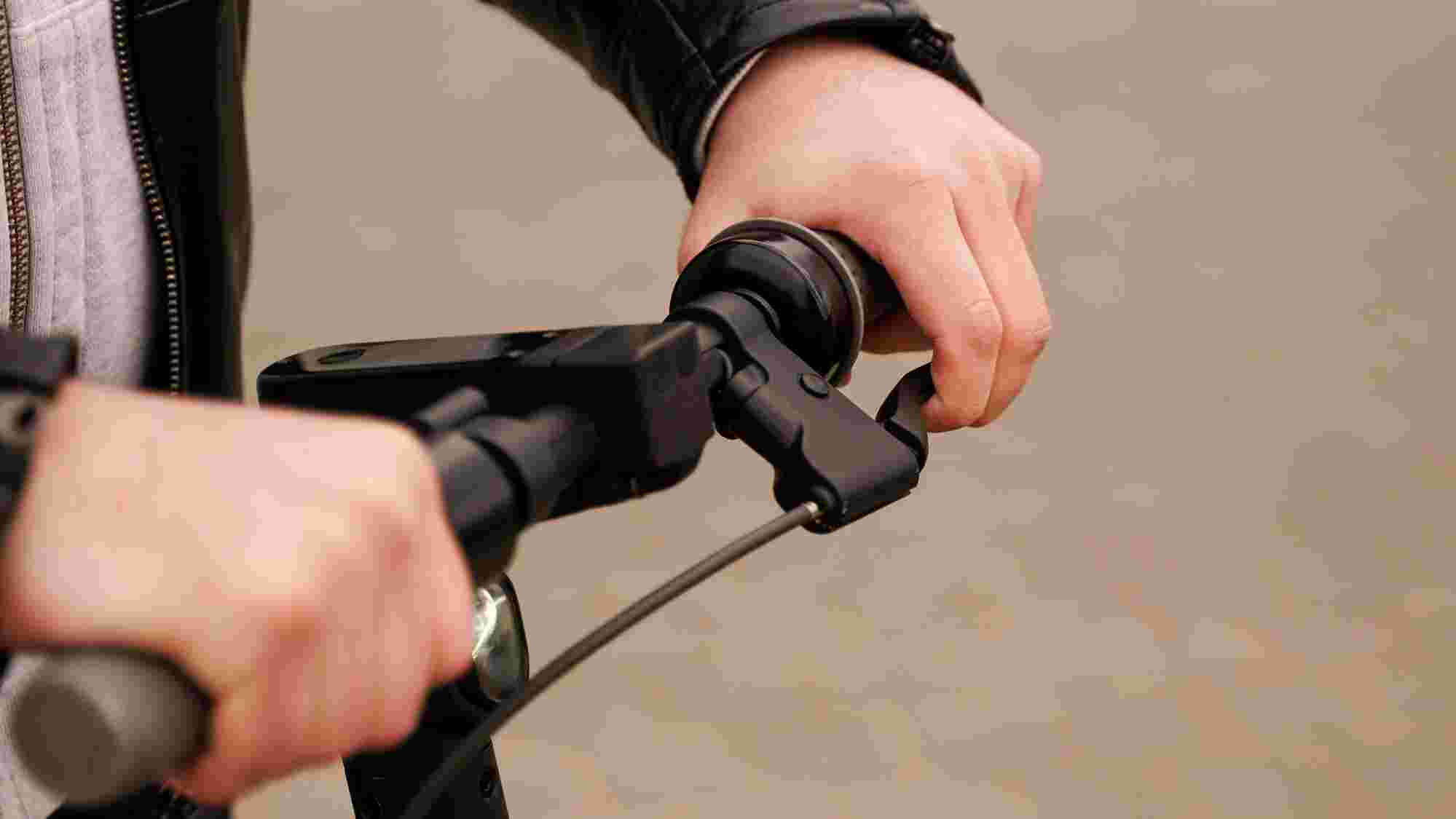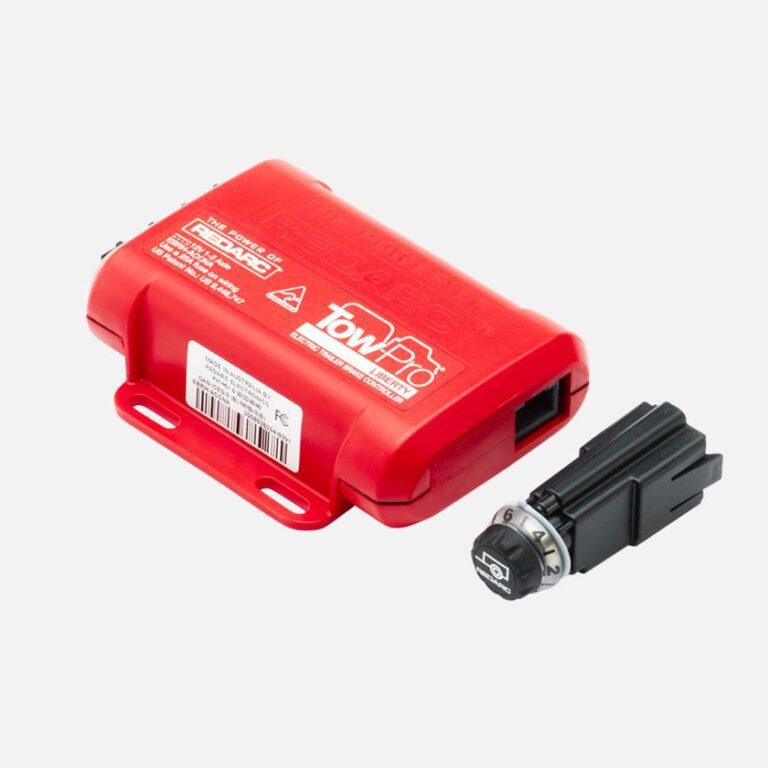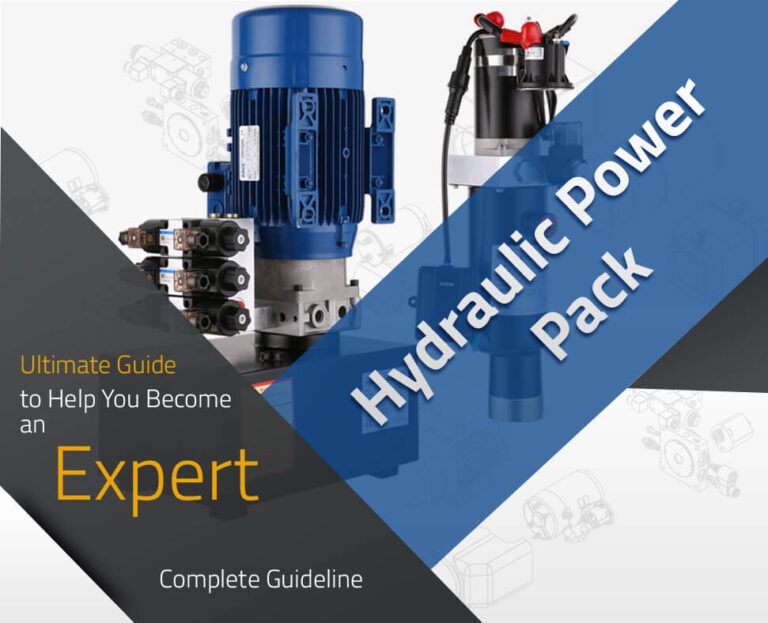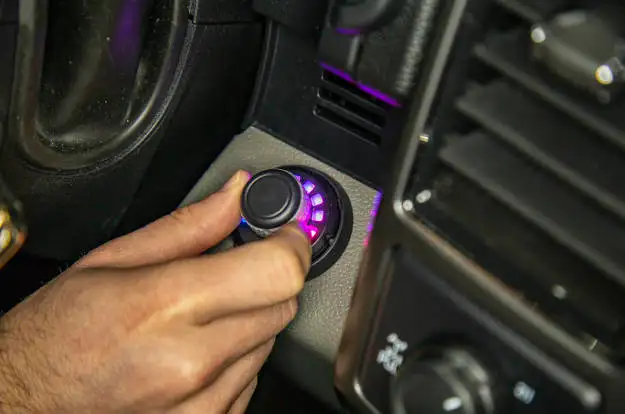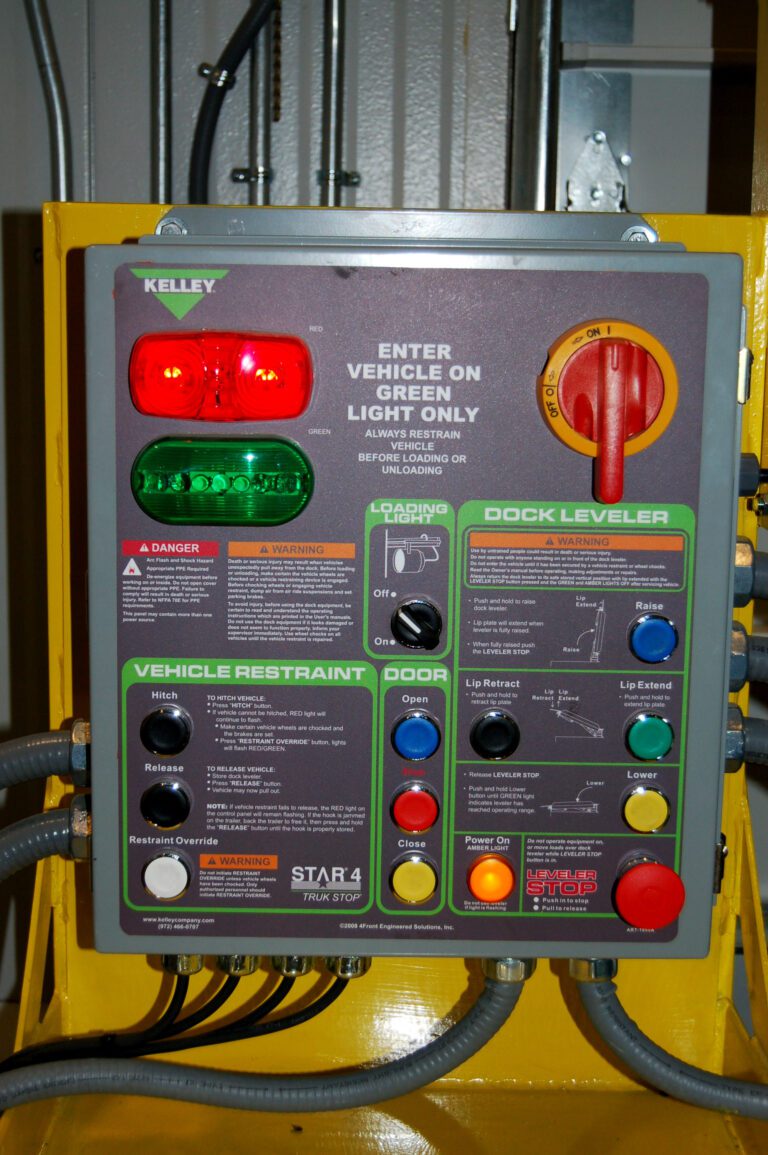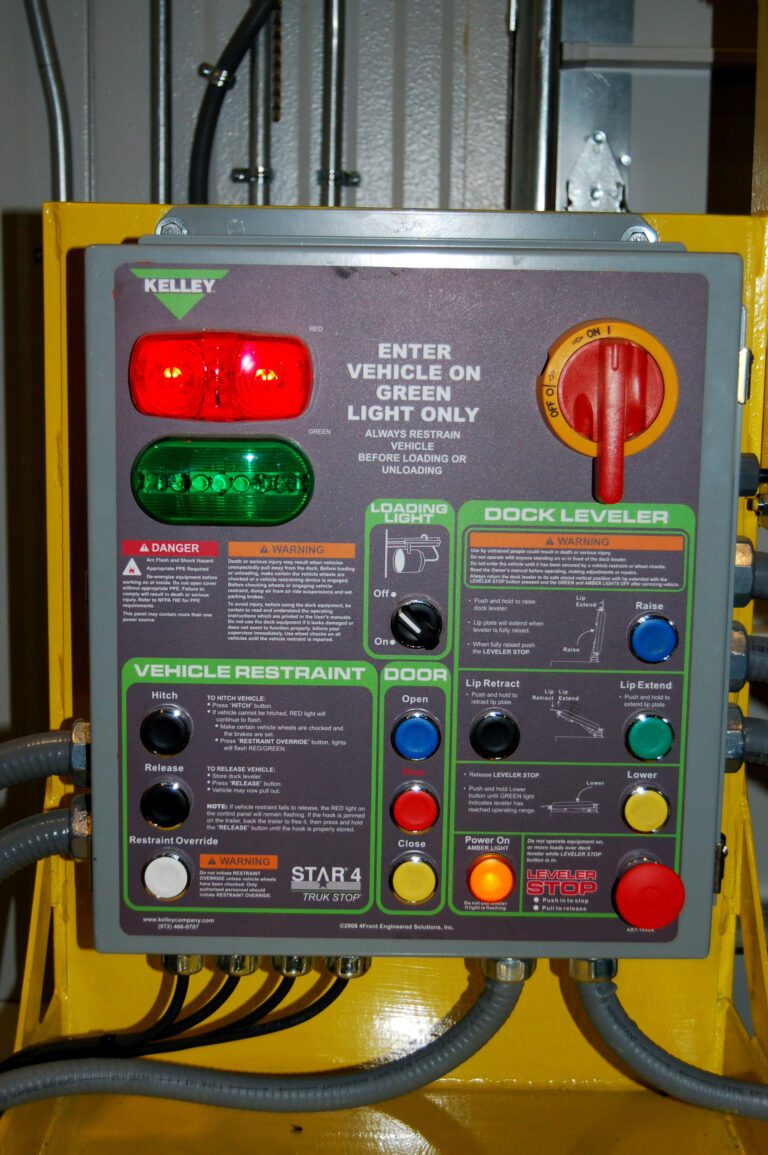Discover the Essential Types of Trailer Brake Controllers: A Comprehensive Guide
Trailer brake controllers come in three main types: time-based, proportional, and inertial. Time-based brake controllers apply a preset amount of braking power to the trailer.
Proportional controllers adjust the braking power based on the amount of pressure applied to the vehicle’s brake pedal. Inertial controllers use accelerometers to sense the deceleration of the vehicle and apply the appropriate amount of braking force to the trailer.
Trailer brake controllers are essential for ensuring safe towing experiences. They allow the driver to control the braking of a trailer, preventing it from pushing or outweighing the towing vehicle. Understanding the different types of brake controllers can help in choosing the right one for specific towing needs. This article will discuss the three main types of trailer brake controllers: time-based, proportional, and inertial. Each type has its own advantages and considerations, and selecting the appropriate controller is vital for maintaining optimal control and safety while towing.

Credit: road.cc
I. Introduction To Trailer Brake Controllers
Choosing The Right Brake Controller – The Key To Safe Towing
When it comes to towing a trailer, safety is of utmost importance. One essential component that ensures safe towing is a trailer brake controller. A trailer brake controller is a device that enables the driver to control the electric brakes in the trailer, ensuring smooth and controlled braking.
With various types of trailer brake controllers available in the market, it is crucial to choose the right one for your needs. In this section, we will explore the key factors to consider when selecting a trailer brake controller.
Types Of Trailer Brake Controllers
There are different types of trailer brake controllers available, each with its unique features and benefits. Understanding the different types will help you make an informed decision about the most suitable one for your towing needs. Let’s take a look at some common types of trailer brake controllers:
- Time-delayed brake controllers:
- These brake controllers work based on a pre-set time delay that determines the amount of braking power to apply.
- The delay allows the driver to control the braking intensity according to the trailer’s weight and load.
- Easily adjustable and suitable for light to moderate towing needs.
- Proportional brake controllers:
- Proportional brake controllers provide a braking response that is directly proportional to the braking force applied by the towing vehicle.
- The braking force is sensed by the controller, ensuring smooth and proportional braking.
- Offers enhanced control and responsiveness, making them ideal for heavy-duty towing.
- Hydraulic brake controllers:
- Hydraulic brake controllers are specifically designed for trailers equipped with hydraulic brakes.
- They utilize the hydraulic pressure from the towing vehicle’s braking system to activate the trailer brakes.
- Provide efficient and synchronized braking, ideal for trailers with hydraulic braking systems.
- Electric over hydraulic brake controllers:
- Electric over hydraulic brake controllers combine the benefits of electric and hydraulic brake systems.
- They convert electric signals from the towing vehicle into hydraulic pressure, activating the trailer brakes.
- Provide precise control and increased braking power for trailers with hydraulic brakes.
Choosing the right brake controller is essential to ensure safe and controlled towing. Consider factors such as the weight of your trailer, towing frequency, and the type of brakes on your trailer when making your decision. Remember, a properly installed and calibrated brake controller is crucial for smooth, efficient, and safe trailer braking.
Ii. The Basics: How Trailer Brake Controllers Work
Understanding The Role Of Trailer Brake Controllers In Towing Safety
Trailer brake controllers play a crucial role in ensuring towing safety. These devices are installed in the towing vehicle and control the brakes of the trailer being towed. Understanding how trailer brake controllers work is essential for every responsible driver.
Here are the key points you need to know:
- Trailer brake controllers enable the driver to activate the brakes on the trailer independently of the towing vehicle. This feature is crucial, especially when the trailer weighs significantly more than the towing vehicle.
- By adjusting the brake force applied to the trailer, trailer brake controllers help maintain stability and control, particularly during braking maneuvers.
- Without a trailer brake controller, the towing vehicle relies solely on its own brakes to slow down both the vehicle and the trailer. This can put excessive strain on the towing vehicle’s brakes and potentially lead to loss of control.
- The trailer brake controller receives signals from the towing vehicle’s brake system, allowing the driver to govern the amount of braking power applied to the trailer.
- Various types of trailer brake controllers are available, including time-delayed controllers and proportional controllers. The specific type you choose will depend on your towing needs and preferences.
Now that we understand the importance of trailer brake controllers, let’s delve into the significance of brake control in different towing scenarios.
The Importance Of Brake Control In Different Towing Scenarios
Different towing scenarios require varying levels of brake control to ensure safety on the road. Here’s what you need to know:
- When towing a lightweight trailer, such as a small utility trailer, you may not require a sophisticated brake controller. However, even in these scenarios, having a basic time-delayed trailer brake controller can provide added safety and control.
- For towing heavier trailers, such as recreational vehicles or large cargo trailers, a proportionate trailer brake controller is highly recommended. This type of controller adjusts the trailer’s braking force based on the deceleration of the towing vehicle, providing a more seamless and effective braking experience.
- When towing in hilly or mountainous areas, where the terrain can impact braking requirements, a proportional trailer brake controller becomes even more crucial. It ensures that the trailer’s brakes activate in sync with the towing vehicle’s brakes, maintaining stability and control on steep descents.
- It’s important to note that some states and provinces have regulations regarding the use of trailer brake controllers. Familiarize yourself with these regulations to ensure compliance and, more importantly, your safety.
By understanding the role of trailer brake controllers in towing safety and recognizing the importance of brake control in different towing scenarios, you can make informed decisions to enhance your overall towing experience. Remember to choose the right trailer brake controller and always prioritize safety on the road.
Iii. Time-Based Trailer Brake Controllers
How Time-Based Brake Controllers Operate
Time-based brake controllers are a type of trailer brake controller that operate using a preset time delay to apply braking power to the trailer. The key points to understand about the operation of time-based brake controllers are:
- Time-based brake controllers use a simple and reliable mechanism to apply the trailer brakes. When the driver applies the brakes in the tow vehicle, the controller sends a signal to the trailer brakes, initiating a preset time delay before the brakes are engaged.
- This time delay is typically adjustable, allowing the driver to control the amount of time it takes for the trailer brakes to engage after the tow vehicle’s brakes are applied.
- Once the time delay is complete, the controller applies the trailer brakes with a steady and consistent level of braking power. The intensity of the braking power is not adjusted based on the braking force applied by the tow vehicle.
- Time-based controllers are designed to mimic the proportional braking system, though they may not provide the same level of accuracy or responsiveness.
Advantages And Limitations Of Time-Based Controllers
Time-based brake controllers have their own set of advantages and limitations. Here are the key points to consider:
Advantages:
- Cost-effective: Time-based brake controllers are generally more affordable compared to other types of brake controllers, making them an attractive option for budget-conscious individuals.
- Ease of use: These controllers are relatively simple to install and operate, requiring minimal adjustments or fine-tuning.
- Compatibility: Time-based controllers can work with a wide range of trailer types, making them versatile options for various towing needs.
Limitations:
- Lack of precision: Unlike proportional brake controllers, time-based controllers do not adjust the braking power in real-time based on the braking force applied by the tow vehicle. This may result in less precise braking performance, especially in different driving conditions.
- Limited customization: While the time delay can be adjusted, time-based controllers lack the ability to fine-tune the braking response according to specific towing requirements.
- Potential for wear and tear: The time delay mechanism in these controllers relies on moving parts, which may be subject to wear and tear over time, requiring periodic maintenance or replacement.
Best Applications For Time-Based Brake Controllers
Time-based brake controllers are suitable for specific towing situations. Consider the following applications:
- Light to moderate towing: Time-based controllers are well-suited for towing lighter trailers, such as utility trailers or small campers.
- Consistent braking needs: If your towing requirements involve consistent and predictable braking needs, a time-based controller can offer reliable performance.
- Budget-conscious individuals: If cost is a significant factor in your decision-making process, time-based brake controllers provide an affordable option without compromising essential functionality.
Remember to consider your specific towing needs, trailer weight, and your preferences when choosing the appropriate brake controller for your towing setup.
Iv. Proportional Trailer Brake Controllers
How Proportional Brake Controllers Function
Proportional brake controllers are designed to provide smooth and consistent braking power to your trailer. Unlike other types of brake controllers, they operate in sync with your vehicle’s braking system, applying the trailer brakes in proportion to the force applied to the vehicle’s brakes.
Key points about how proportional brake controllers function:
- Utilize an internal sensor to detect the deceleration of the tow vehicle
- The controller calculates the appropriate amount of braking power needed for the trailer
- Apply the trailer brakes in proportion to the vehicle’s braking force
- Ensures consistent and synchronized braking, resulting in reduced wear and tear on the brakes
Key Benefits Of Proportional Brake Controllers
Proportional brake controllers offer several advantages over other types of brake controllers. Here are some of the key benefits:
- Enhanced safety: Proportional braking allows for smoother and more controlled stops, reducing the risk of trailer sway and jackknifing.
- Improved braking performance: These controllers provide more precise braking power based on the vehicle’s deceleration, resulting in better overall braking performance.
- Reduced wear on brakes: By applying the trailer brakes in proportion to the vehicle’s braking force, proportional controllers help minimize wear and tear on both the vehicle and trailer brakes.
- Easy installation: Many proportional brake controllers are user-friendly and can be easily installed in your vehicle with basic tools.
Fine-Tuning Braking Performance With Proportional Controllers
One of the key advantages of proportional brake controllers is the ability to fine-tune the braking performance according to your specific towing needs. Here’s how you can tailor the braking performance with proportional controllers:
- Manual control: Most proportional brake controllers provide a manual override option, allowing you to apply the trailer brakes independently of the vehicle’s brakes. This can be useful in situations where you need to slow down or stop the trailer without applying the vehicle’s brakes.
- Brake force adjustment: Proportional controllers often feature a brake force adjustment knob or button that allows you to customize the amount of braking power applied to the trailer. This adjustment is particularly useful when towing different trailers with varying weights and braking requirements.
- Sensitivity adjustment: Some proportional controllers also offer sensitivity adjustment settings, which determine how quickly the trailer brakes engage in response to the vehicle’s braking. Adjusting the sensitivity can help you find the optimal balance between responsiveness and smoothness.
Proportional brake controllers provide a level of control and responsiveness that can greatly enhance your towing experience. With their ability to synchronize braking and customize braking performance, they offer a safer, more efficient, and more enjoyable towing experience for both short trips and long journeys.
V. Inertia-Activated Trailer Brake Controllers
Exploring The Mechanics Of Inertia-Activated Controllers
Inertia-activated trailer brake controllers are designed to respond to the inertia or momentum of the towing vehicle and trailer. These controllers provide a smooth and proportional braking experience by detecting the deceleration or acceleration of the towing vehicle. Here’s how they work:
- Inertia-activated brake controllers use a pendulum or an accelerometer to measure the change in momentum of the towing vehicle.
- When the driver applies the brakes, the inertia sensor detects the change in momentum and activates the trailer brakes accordingly.
- The level of braking force applied to the trailer is proportional to the change in momentum of the towing vehicle.
- As the towing vehicle slows down, the inertia sensor adjusts the braking force to match the rate of deceleration, providing a more controlled and responsive braking experience.
Advantages And Considerations Of Inertia-Activated Controllers
Inertia-activated brake controllers offer several advantages over other types of trailer brake controllers. Here are some key points to consider:
- Progressive braking: These controllers provide proportional and progressive braking, meaning that the braking force applied to the trailer increases or decreases based on the vehicle’s deceleration or acceleration. This results in a smoother and more controlled braking experience, reducing the risk of skidding or jackknifing.
- Easy installation: Inertia-activated controllers are relatively easy to install, requiring minimal wiring and no additional components like accelerometers or pendulums.
- Compatibility: These controllers are compatible with a wide range of trailer types, including boat trailers, rv trailers, horse trailers, and utility trailers.
- Self-leveling: Inertia-activated controllers automatically adjust the braking force based on the weight distribution of the trailer and the towing vehicle, ensuring optimal braking performance regardless of the load being carried.
- Cost-effective: Compared to other types of trailer brake controllers, inertia-activated controllers are generally more affordable, making them a cost-effective option for most towing needs.
Considerations:
- Inertia-activated controllers may require periodic adjustment to ensure optimal braking performance, especially if the towing vehicle and trailer combination changes frequently.
- Extreme trailer weight variations may affect the accuracy of the braking force applied, requiring manual adjustment for optimal performance.
- Inertia-activated controllers may not be suitable for certain towing applications that require precise and immediate braking response, such as heavy-duty hauling or off-road conditions.
Optimal Applications For Inertia-Activated Brake Controllers
Inertia-activated brake controllers are well-suited for a variety of towing situations. Here’s a look at some optimal applications:
- Recreational towing: Whether you’re towing a camper, a boat, or a horse trailer, inertia-activated brake controllers provide smooth and proportional braking, enhancing safety and control during your outdoor adventures.
- Everyday towing: If you frequently tow trailers for work or personal use, inertia-activated controllers offer cost-effective and reliable braking performance for a wide range of loads.
- Light to medium-duty hauling: If you’re hauling smaller loads on a regular basis, such as landscaping equipment or construction materials, inertia-activated controllers provide the necessary braking control without the need for complex installation or adjustments.
Remember, when choosing the right type of brake controller for your trailer, consider the specific requirements of your towing needs and consult with a qualified professional if needed.
Vi. Hydraulic Trailer Brake Controllers
Understanding The Hydraulic Brake Control System
Hydraulic trailer brake controllers are an advanced braking system that utilizes hydraulic pressure to control the trailer brakes. This system is often used in heavier trailers that require more stopping power. Here are the key points to understand about hydraulic brake control systems:
- Hydraulic brake controllers use hydraulic pressure to activate the trailer brakes when the towing vehicle’s brakes are applied.
- The controller is connected to the tow vehicle’s brake system and controls the release of hydraulic pressure to the trailer brakes.
- When the tow vehicle’s brakes are pressed, the hydraulic pressure is transmitted through the trailer’s brake lines, engaging the brakes and bringing the trailer to a stop.
Benefits And Drawbacks Of Hydraulic Brake Controllers
Hydraulic trailer brake controllers offer several advantages and disadvantages. Here’s a breakdown of their benefits and drawbacks:
Benefits:
- Enhanced braking power: Hydraulic brake controllers provide increased stopping power, making them suitable for larger trailers and heavier loads.
- Smoother braking experience: The hydraulic system ensures a more seamless and controlled braking experience, minimizing the risk of trailer sway or jackknife situations.
- Reliable performance: Hydraulic brake controllers are known for their reliability, as they are not affected by electrical malfunctions or trailer wiring issues.
Drawbacks:
- Higher installation cost: Hydraulic brake systems are generally more expensive to install compared to other types of brake controllers.
- Additional maintenance requirements: The hydraulic system requires regular maintenance, including bleeding the brake lines to remove air bubbles and checking the hydraulic fluid levels.
- Increased complexity: Hydraulic brake controllers are more complex systems, requiring a deeper understanding of their operation and maintenance.
Ideal Situations For Using Hydraulic Brake Controllers
While hydraulic brake controllers have their advantages, they are best suited for specific situations. Here are some ideal scenarios where hydraulic brake controllers shine:
- Towing heavy loads: Hydraulic brake controllers provide the extra stopping power needed for towing larger trailers, such as horse trailers, rvs, or boats.
- Off-road or rugged terrain: When towing on off-road or uneven terrains, hydraulic brake controllers offer better control and stability, ensuring safe braking in challenging conditions.
- Long-distance towing: If you frequently tow over long distances, hydraulic brake controllers can provide consistent and reliable braking performance, reducing the risk of brake fade.
Hydraulic trailer brake controllers are an advanced braking system that utilizes hydraulic pressure to control the trailer brakes. While they offer enhanced braking power and a smoother braking experience, they also come with higher installation costs and additional maintenance requirements.
However, in situations where heavy loads, off-road conditions, or long-distance towing are involved, hydraulic brake controllers prove to be the ideal choice.
Vii. Dynamic Trailer Brake Controllers
How Dynamic Brake Controllers Adapt To Changing Conditions
Dynamic brake controllers are a type of trailer brake controllers that are designed to adapt to changing conditions on the road. These controllers utilize advanced technology to provide seamless and efficient braking performance in various situations. Here are some key points to understand about dynamic brake controllers:
- Dynamic brake controllers automatically adjust the trailer brake settings based on factors such as the weight of the trailer, the speed of the vehicle, and the road conditions. This adaptive feature ensures optimal braking power and control at all times.
- By continuously monitoring the braking force needed and making real-time adjustments, dynamic brake controllers prevent trailer swaying and jackknifing that can occur when braking too forcefully. This helps maintain stability and enhances overall safety while towing.
- Dynamic brake controllers utilize sensors and accelerometers to detect changes in motion and deceleration. This information is then used to calculate the necessary brake force required to bring the trailer to a smooth and controlled stop.
- These controllers are suitable for a wide range of trailers, including travel trailers, horse trailers, boat trailers, and utility trailers. Whether you’re driving on a flat highway or navigating steep downhill descents, dynamic brake controllers can adapt to the specific towing conditions.
- Many dynamic brake controllers offer additional features such as manual override controls, allowing the driver to manually apply the trailer brakes when needed. This can be useful in situations where extra braking power is required, or when having better control during low-traction scenarios.
Advantages And Limitations Of Dynamic Brake Controllers
Understanding the advantages and limitations of dynamic brake controllers is essential in determining if they are the right choice for your towing needs. Here are some important points to consider:
Advantages:
- Dynamic brake controllers provide enhanced safety by automatically adjusting brake settings based on the changing conditions, ensuring optimal braking performance.
- These controllers greatly reduce the risk of trailer sway and jackknifing, enhancing stability and control while towing.
- With their adaptive capabilities, dynamic brake controllers offer smoother and more controlled stops, minimizing wear and tear on the trailer brakes and improving overall braking efficiency.
- The ability to manually override the brake settings can be beneficial in situations where additional braking force or fine-tuning is required, giving the driver added control.
Limitations:
- Dynamic brake controllers may require a more complex installation process compared to other types of brake controllers, as they often require a connection to the tow vehicle’s electrical system.
- They tend to be more expensive compared to basic and time-delayed brake controllers, due to their advanced technology and adaptive features.
- Some dynamic brake controllers may require periodic calibration and adjustment to ensure optimal functionality, adding to the maintenance requirements.
Optimal Scenarios For Dynamic Brake Controller Usage
While dynamic brake controllers offer many benefits, there are certain scenarios where their usage is particularly advantageous. Consider the following situations:
- Towing heavy trailers: Dynamic brake controllers excel in maintaining control and stability when towing heavy loads. Their adaptive nature allows for precise and efficient braking, even when towing large and heavy trailers.
- Hilly or mountainous terrain: When towing through hilly or mountainous regions, dynamic brake controllers shine by adjusting the brake force to prevent trailer sway and maintain control during descents and ascents.
- Variable road conditions: From wet roads to gravel surfaces, dynamic brake controllers can adapt to various road conditions, providing consistent and reliable braking performance.
- Frequent towing: If you frequently tow different trailers with varying loads, a dynamic brake controller offers versatility and adaptability, ensuring optimal braking performance for each towing scenario.
Dynamic brake controllers offer adaptive capabilities, enhanced safety, and improved control while towing. They are particularly beneficial in scenarios involving heavy loads, hilly terrains, variable road conditions, and frequent towing. However, their installation may be more complex, and they tend to be more expensive compared to other types of brake controllers.
Viii. Factors To Consider When Choosing A Brake Controller
When it comes to choosing the right brake controller for your trailer, there are several factors you need to consider. To ensure optimal performance and safety, pay attention to the following key points:
Understanding The Importance Of Trailer Weight And Load
- Consider the weight and load of your trailer before selecting a brake controller. Different brake controllers are designed to handle specific weight capacities, so it’s crucial to choose one that matches your trailer’s requirements.
- Keep in mind that a brake controller that is too small will struggle to provide sufficient braking power, while one that is too large may be overly sensitive and lead to excessive braking.
Compatibility With Different Trailer Types
- Determine the type of trailer you will be towing. Some brake controllers are specifically designed for certain trailer types, such as travel trailers, boat trailers, or horse trailers. Make sure to choose a brake controller that is compatible with your specific trailer type.
- Consider factors like the number of axles and braking system of your trailer, as these may influence the type of brake controller you need.
Essential Features To Look For In A Brake Controller
- Look for a brake controller that offers proportional or time-delayed braking. Proportional brake controllers apply the trailer’s brakes in sync with the towing vehicle, ensuring smooth and even braking.
- Consider the availability of manual override controls, which allow you to manually engage the trailer brakes when necessary.
- Opt for a brake controller with an easy-to-read display, allowing you to monitor brake force and adjust settings efficiently.
- Select a brake controller that offers versatile mounting options for convenient installation in your vehicle.
- Ensure the brake controller is compatible with your vehicle’s electrical system, as some newer vehicles require additional wiring or adapters.
Integration With Vehicle’S Brake System
- Check whether the brake controller you’re considering can integrate seamlessly with your vehicle’s braking system. Some brake controllers require additional components, such as brake pressure sensors or wiring harnesses, to ensure proper functionality. Verify that these components are compatible with your vehicle.
- Consider whether you prefer a brake controller that utilizes the vehicle’s existing brake lights for trailer brake activation or one that operates independently.
By considering these factors when choosing a brake controller, you can ensure that you have the right one for your trailer, providing optimal safety and control during towing. Take your time to research and select the brake controller that best suits your specific towing needs.
Ix. Installation And Setup Of Trailer Brake Controllers
Step-By-Step Guide To Installing Brake Controllers
To ensure the proper functionality of your trailer brake system, it is essential to correctly install and set up your brake controller. Follow these steps to install your brake controller effectively:
- Determine the type of brake controller: There are three main types of brake controllers – time-delayed, proportional, and hybrid. Choose the one that best suits your towing needs.
- Locate the brake controller mounting position: Find a suitable location on your vehicle’s dashboard within easy reach of the driver’s seat. Ensure it is easily visible and does not obstruct any other controls.
- Mount the brake controller bracket: Secure the brake controller bracket onto the chosen location using screws and a screwdriver. Ensure it is firmly attached for stability during operation.
- Connect the brake controller wiring harness: Plug one end of the brake controller wiring harness into the back of the controller and the other end into the vehicle’s wire harness plug. This connection allows the brake controller to communicate with the towing vehicle’s electrical system.
- Mount the trailer brake switch: Install the trailer brake switch near the driver’s seat, typically within arm’s reach. This switch allows manual control of the trailer brakes when necessary.
- Connect the brake controller to the trailer: Attach the trailer wiring harness to the brake controller using the provided connectors. Ensure a secure connection to enable communication between the brake controller and trailer brakes.
- Test the brake controller: Once the installation is complete, test the brake controller’s functionality by towing the trailer in a safe, open area. Check if the trailer brakes engage properly at different speeds and pressures.
Adjusting And Fine-Tuning Brake Controller Settings
After installing the brake controller, you may need to make some adjustments and fine-tune the settings for optimal performance. Follow these steps to ensure your trailer’s braking system operates smoothly:
- Setting the gain: Adjust the gain control knob on your brake controller based on the weight of your trailer. A higher gain setting is suitable for heavier trailers, while lighter trailers require a lower gain setting.
- Testing the braking sensitivity: Take your vehicle and trailer for a test drive to ensure the brake controller engages the trailer brakes smoothly. Pay attention to any jerking or sudden stops and make adjustments accordingly.
- Fine-tuning the braking force: If the trailer brakes engage too forcefully or not forcefully enough, you can fine-tune the braking force using the brake controller’s sensitivity or power switch. Test different settings until you achieve the desired braking response.
- Evaluating trailer-wheel lockup: During the test drive, check for any signs of trailer-wheel lockup. If the wheels lock up too easily, reduce the gain or power setting. On the other hand, increase the setting if the trailer wheels are not locking up when desired.
Common Mistakes To Avoid During Installation
To ensure a successful installation and proper functioning of your trailer brake controller, avoid the following common mistakes:
- Poor mounting position: Choosing an improper or inconvenient mounting location can hinder visibility and access to the brake controller. Ensure it is securely mounted and easily reachable for adjustments.
- Incorrect wiring connections: Double-check all wiring connections to make sure they are properly matched and securely connected. Loose or incorrect wiring can lead to malfunctioning trailer brakes.
- Insufficient gain adjustment: Failing to adjust the gain setting according to the trailer’s weight can result in inadequate braking force. Adjust the gain setting to match the trailer you are towing.
- Neglecting regular maintenance: Once the brake controller is installed, it is important to regularly inspect and maintain its components. Check for any loose wiring, corrosion, or damage that may affect its performance.
- Ignoring manufacturer instructions: Each brake controller may have specific installation and setup instructions provided by the manufacturer. Disregarding these instructions can lead to improper installation and potential issues down the road.
Remember, installing and setting up a brake controller requires attention to detail and careful adjustment. Following the step-by-step guide, fine-tuning the settings, and avoiding common mistakes will ensure your trailer brake system operates effectively and enhances towing safety.
X. Maintenance And Troubleshooting Of Trailer Brake Controllers
Regular Maintenance Tips For Brake Controllers
Brake controllers play a crucial role in ensuring the safe and efficient operation of your trailer’s braking system. To keep your brake controller functioning optimally, regular maintenance is essential. Here are some tips to help you maintain your trailer brake controller:
- Check the wiring connections: Begin by inspecting all the wiring connections between the brake controller and the trailer. Look for any loose or damaged wires and ensure they are properly connected.
- Clean the controller: Over time, dirt and debris can accumulate on the surface of the brake controller. Use a clean, dry cloth to wipe off any dust or grime to keep the controller clean and functioning properly.
- Monitor the brake fluid level: Brake fluid is essential for the proper operation of your trailer’s braking system. Regularly check the brake fluid level and top it up if necessary to maintain optimal braking performance.
- Inspect the trailer brakes: The health of your trailer brakes directly impacts the function of the brake controller. Regularly inspect the brake pads, drums, and other brake components for any signs of wear or damage. Replace any worn-out parts to ensure optimal braking performance.
- Test the brake controller: Periodically test the brake controller to ensure it is functioning correctly. Follow the manufacturer’s instructions on how to perform a brake force test to ensure the system is delivering the appropriate amount of braking force to the trailer.
Identifying And Resolving Common Brake Controller Issues
Despite regular maintenance, brake controller issues may still arise. Here are some common problems you may encounter with your trailer brake controller and how to resolve them:
- No brakes or weak braking: If your trailer brakes aren’t engaging or the braking force is weak, check the brake controller settings. Ensure it is properly adjusted to provide sufficient braking force. If the settings are correct, inspect the wiring connections between the brake controller and the trailer for any faults or loose connections.
- Intermittent braking: If your trailer brakes engage sporadically, it could indicate a wiring or connection issue. Inspect the wiring for any frayed or damaged areas and ensure all connections are secure. If the problem persists, consult a professional for further assistance.
- Brake lock-up: In some cases, the trailer brakes may lock up, causing the wheels to skid. This can result from a faulty brake controller or an incorrect adjustment of the brake force. Check the controller settings and consult the manufacturer’s guidelines to properly adjust the brake force.
- Error codes or false alerts: Some brake controllers are equipped with error code systems that alert you to potential issues. If you receive error codes or false alerts, refer to the manufacturer’s manual to understand the specific meaning of each code and troubleshoot accordingly.
When To Seek Professional Help
While regular maintenance and troubleshooting can address many brake controller issues, some problems may require the expertise of a professional. Here are some instances where you should consider seeking professional help:
- Persistent issues: If you’ve tried troubleshooting the brake controller but the problem persists, it’s wise to consult a professional. They have the expertise and tools to diagnose and resolve complex issues.
- Electrical problems: If you suspect an electrical problem with the brake controller or the trailer’s electrical system, it’s best to leave it to a professional electrician. They can diagnose and repair any underlying electrical faults that may be affecting the brake controller’s performance.
- Brake system overhaul: If your trailer’s braking system requires extensive repairs or an overhaul, it’s recommended to have the work done by a professional mechanic. They can ensure all components are properly installed and calibrated for optimal braking performance.
Remember, regular maintenance and prompt troubleshooting play a vital role in keeping your trailer brake controller in top condition. By addressing issues promptly and seeking professional help when needed, you can ensure safe and reliable towing experiences.
Frequently Asked Questions For Types Of Trailer Brake Controllers
What Are Trailer Brake Controllers?
Trailer brake controllers are devices that help control the braking of trailers by sending signals to the trailer’s brakes.
How Do Trailer Brake Controllers Work?
Trailer brake controllers work by sensing the braking force applied in the towing vehicle and then activating the trailer’s brakes accordingly.
Why Do I Need A Trailer Brake Controller?
Having a trailer brake controller is crucial for safe towing, as it helps evenly distribute braking power between the towing vehicle and the trailer.
Are There Different Types Of Trailer Brake Controllers?
Yes, there are various types of trailer brake controllers available, including time-delayed controllers, proportional controllers, and hydraulic over electric controllers.
What Is A Time-Delayed Trailer Brake Controller?
A time-delayed trailer brake controller applies a preset amount of braking power to the trailer after a certain delay, providing a consistent braking experience.
How Does A Proportional Trailer Brake Controller Work?
A proportional trailer brake controller modulates the braking power applied to the trailer based on the deceleration of the towing vehicle, resulting in smoother and more controlled braking.
What Is A Hydraulic Over Electric Brake Controller?
A hydraulic over electric brake controller is designed for trailers equipped with hydraulic brakes, converting the hydraulic pressure into electrical signals to control the trailer’s braking.
How Do I Choose The Right Trailer Brake Controller?
To choose the right trailer brake controller, consider factors such as the towed weight, braking system, installation ease, and personal preference for features like proportional braking.
Can I Install A Trailer Brake Controller Myself?
Yes, if you are knowledgeable about vehicle wiring and have experience, you can install a trailer brake controller yourself by following the manufacturer’s instructions and safety measures.
Are Trailer Brake Controllers Compatible With All Vehicles?
Trailer brake controllers are generally compatible with most vehicles, but it is important to check the compatibility requirements of both the controller and the vehicle before installation.
Conclusion
Overall, understanding the different types of trailer brake controllers is essential for safe and efficient towing. Whether you opt for a time-based controller, an inertia-based controller, or a proportional controller, each type has its benefits and considerations. Time-based controllers offer simplicity and affordability, but they may not provide the most precise braking power.
Inertia-based controllers are more sophisticated, adjusting the braking force based on the trailer’s movement, offering smoother stops. Proportional controllers take it a step further, ensuring that the braking force is seamlessly synchronized with the towing vehicle. Additionally, it is worth noting that there are also wireless options available, providing convenience and flexibility.
Ultimately, the choice of the trailer brake controller will depend on your towing needs, budget, and personal preferences. By selecting the right controller and properly installing it, you can enhance safety and have more control while towing your trailer. So, make an informed decision and enjoy worry-free towing experiences.

